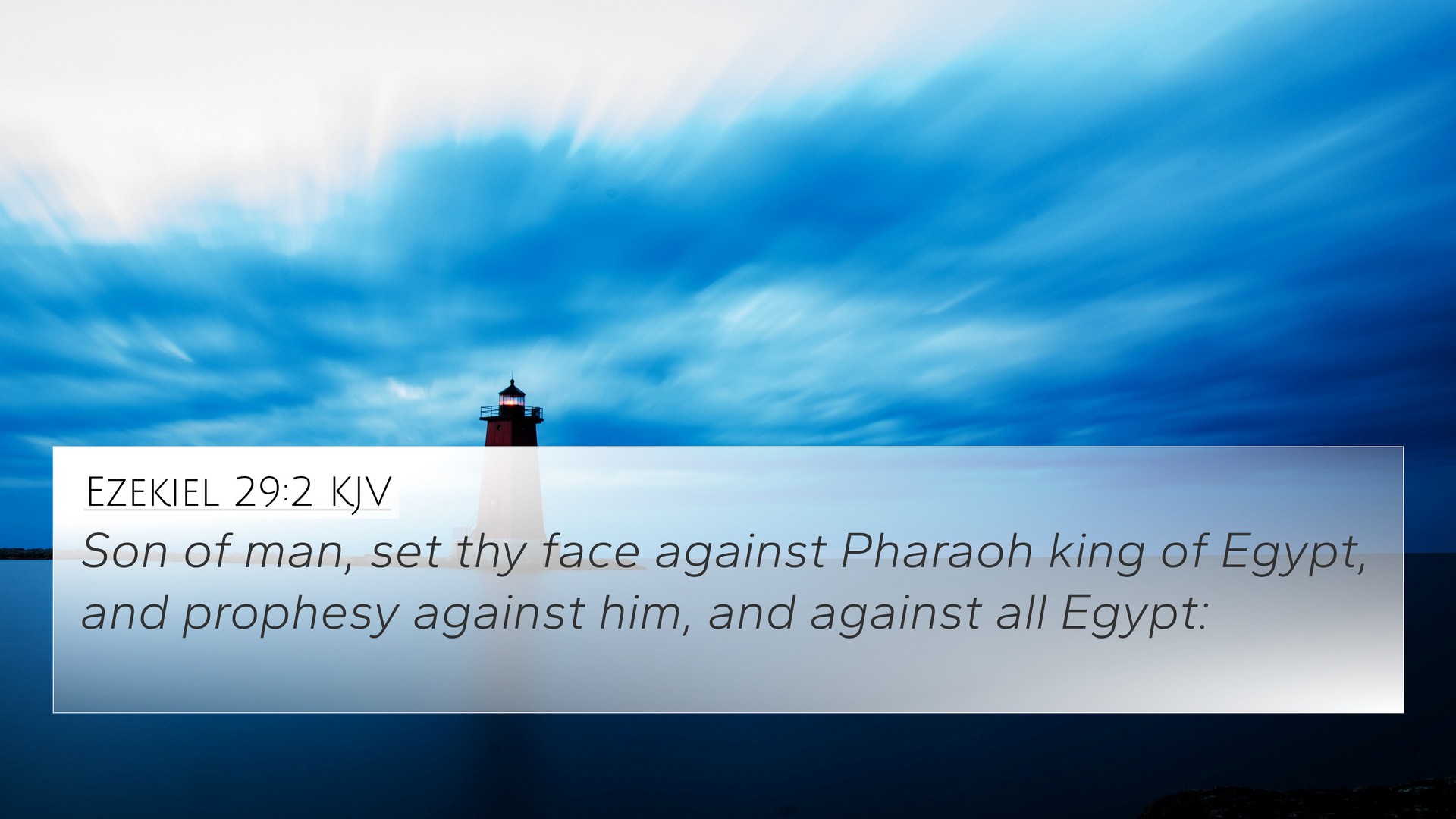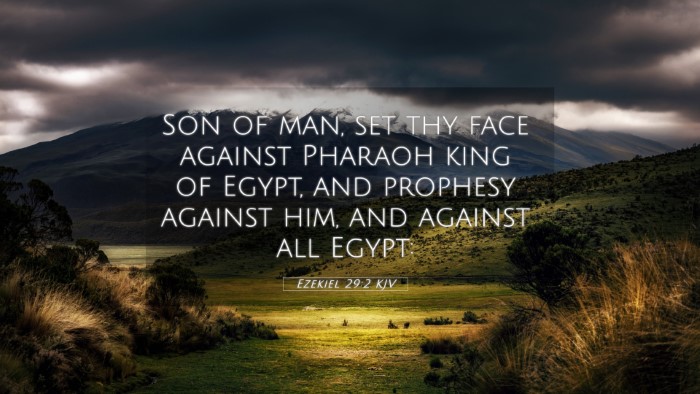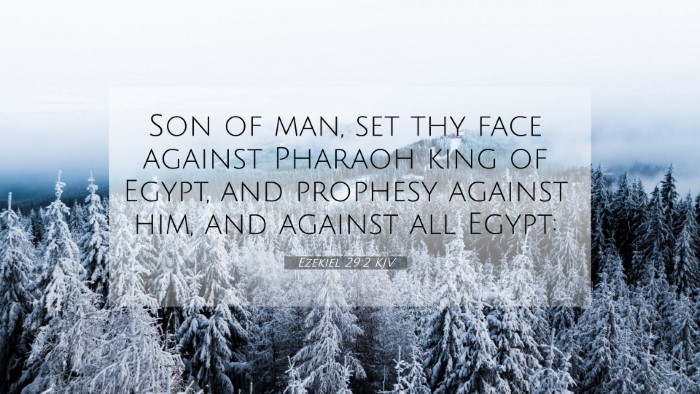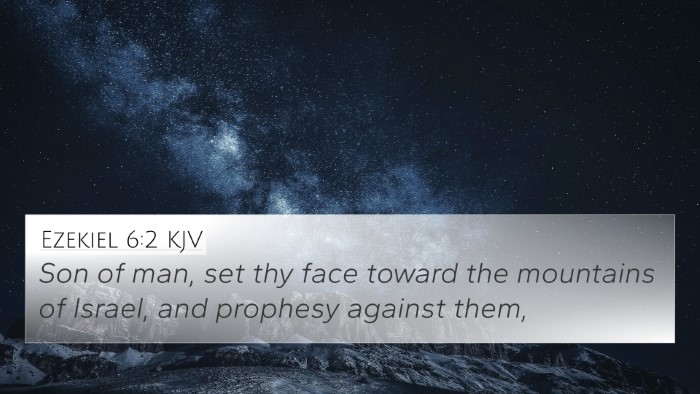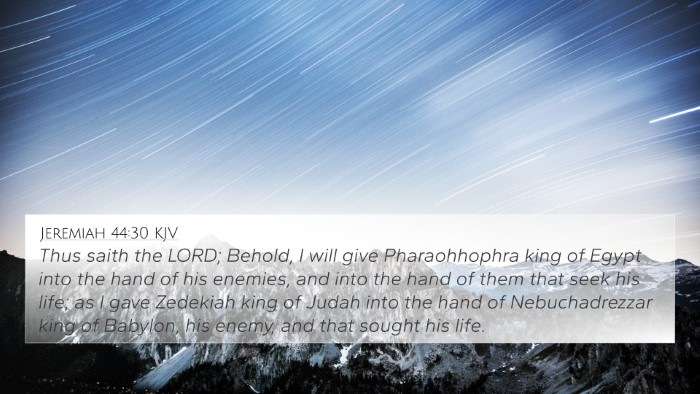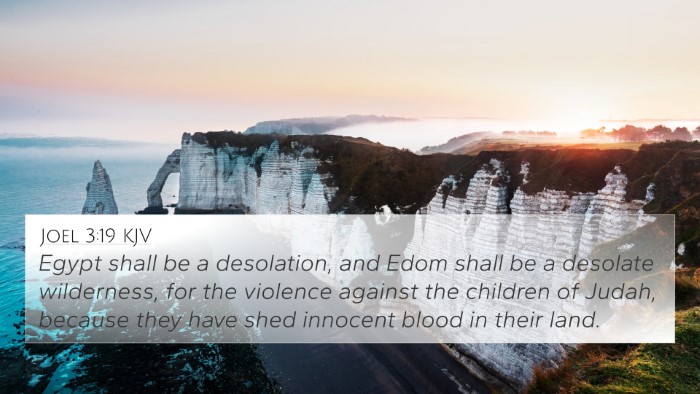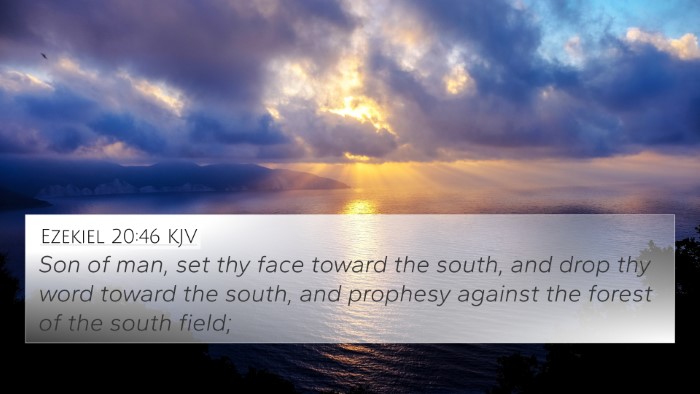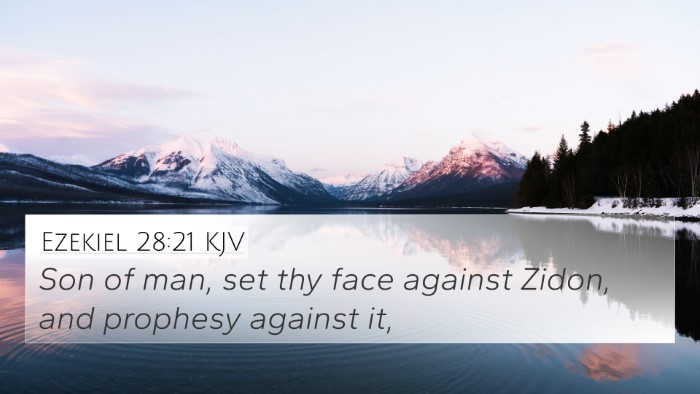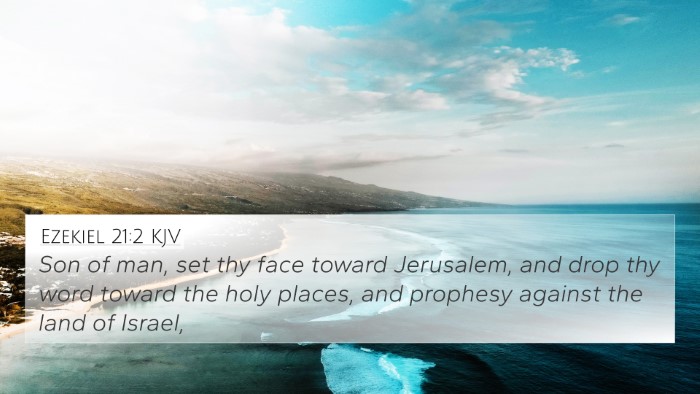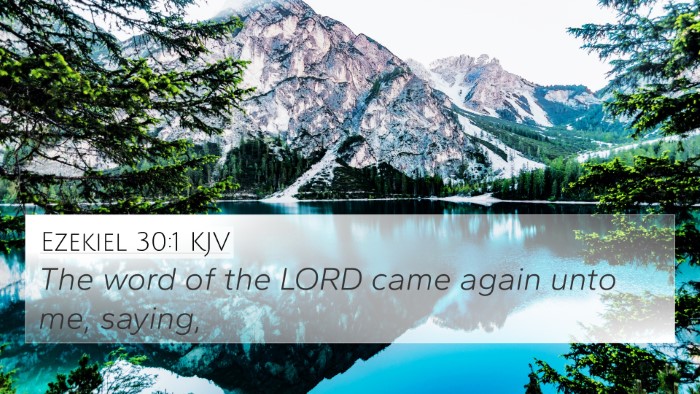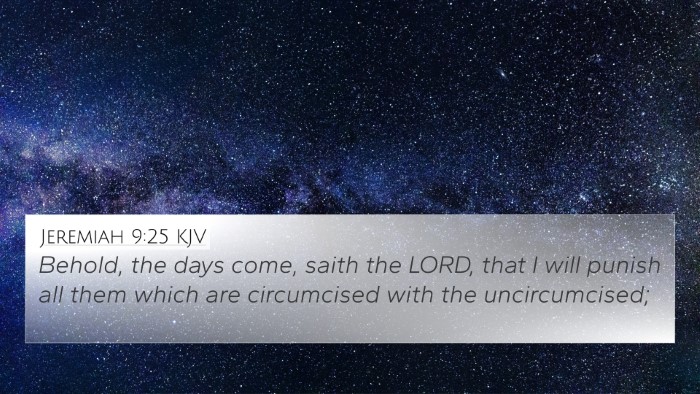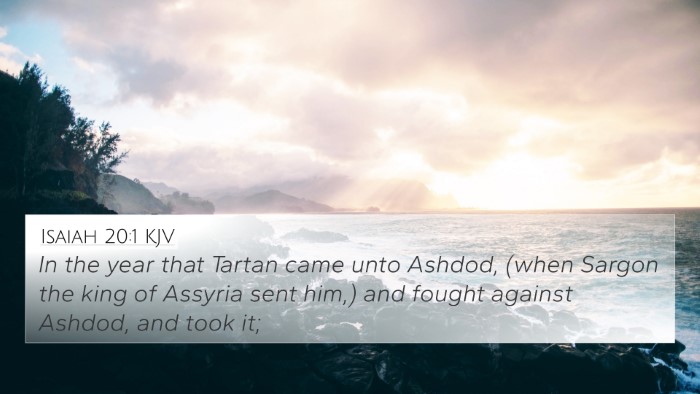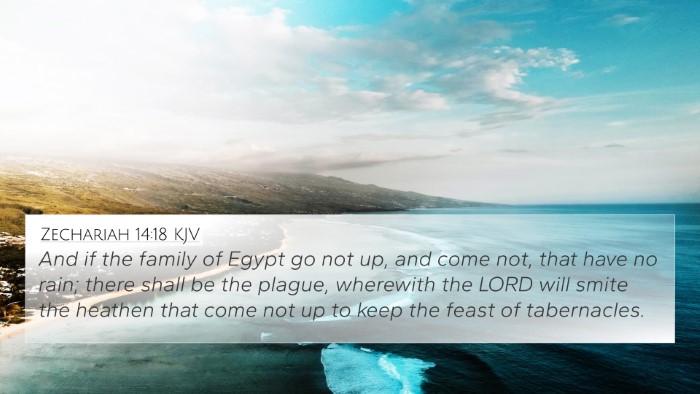Ezekiel 29:2 - Summary and Insights
Ezekiel 29:2 states: “Son of man, set your face against Pharaoh king of Egypt; prophesy against him and against all Egypt.” This verse serves as a divine command to the prophet Ezekiel, calling him to address Pharaoh and the Egyptian nation directly. The themes found in this verse highlight the role of the prophet as a spokesperson for God and the significance of prophecy in delivering messages of warning and judgment.
Contextual Background
The prophecy within Ezekiel 29 unfolds during a tumultuous time for Israel, as they faced external pressures from powerful empires such as Egypt. Matthew Henry notes that Ezekiel's prophetic mission, particularly in relation to nations like Egypt, reflects God’s sovereignty over not just Israel but all nations. This signifies a broader plan wherein God's justice is not limited to His covenant people but extends to all nations.
Interpretive Insights
Both Albert Barnes and Adam Clarke emphasize the historical significance of Egypt in relation to Israel. Egypt was often viewed as a place of refuge but simultaneously as a nation that opposed God’s plan. God’s command to Ezekiel illustrates a decisive moment where He calls Ezekiel to stand firm against any form of false security that Egypt represents.
Key Themes
- Divine Authority: Ezekiel's prophetic call underscores God's authority over all rulers, including Pharaoh.
- Judgment Against Nations: The prophecy serves as a reminder that God judges nations that act in opposition to His will.
- The Role of the Prophet: Ezekiel acts as a mediator through whom God transmits His messages, demonstrating the responsibility placed upon prophets.
- Covenantal Relationships: The historical context signifies Israel's need to understand their relationship with God compared to nations like Egypt.
Bible Verse Cross-References
Understanding Ezekiel 29:2 benefits from analyzing related scriptures that share themes of prophecy, judgment, and the role of nations. Here are some cross-referenced verses:
- Isaiah 19:1-4: Isaiah’s prophecy against Egypt showcases God’s power and intention to humble this nation.
- Jeremiah 46:2: This verse addresses the judgment of Egypt, paralleling the themes found in Ezekiel 29.
- Ezekiel 30:10-11: Further elaboration on God's judgment against Pharaoh and Egypt, linking themes from 29:2.
- Daniel 2:37: This verse reinforces the idea of God giving authority to kingdoms, including Pharaoh's rule.
- Revelation 16:12: The imagery of Egypt in the end times connects back to the prophetic warnings given in the Old Testament.
- Matthew 2:13-15: The Holy Family’s flight to Egypt connects the historical context of Egypt with God’s protective care and Divine timing.
- Exodus 5:1: This earlier text shares God’s confrontation with Pharaoh, emphasizing the ongoing struggle between God’s people and Egypt.
Understanding Inter-Biblical Dialogue
Analyzing Ezekiel 29:2 through the lens of inter-Biblical dialogue reveals the continuity of themes across both the Old and New Testaments. The continuous warnings to Egypt reflect a consistent message from God regarding rebellion and judgment. The connections can be drawn through these scriptures, indicating a holistic understanding of God's sovereignty over nations.
Comparative Bible Verse Analysis
The relationship between Ezekiel 29:2 and the aforementioned verses provides insight into the complex nature of prophecy. By using tools for Bible cross-referencing, readers can see the interconnectedness of God’s message throughout history. The thematic connections highlight how God's judgments extend across time and nations, focusing on their accountability before the Almighty.
Study Resources
Those seeking a deeper understanding of these connections can utilize Bible cross-reference guides and comprehensive Bible verse references. Tools such as concordances and cross-reference systems can aid in identifying related texts, enhancing the study of similar themes and messages. For example, cross-referencing biblical texts with a specific theme can reveal rich layers of insight and connections that may otherwise be overlooked.
Using Cross-References in Personal Study
- Identify Themes: Look for recurring themes in both the Old and New Testaments.
- Make Connections: Create a chart or list of verses that relate to Ezekiel 29:2, comparing themes of judgment and prophetic roles.
- Deepen Understanding: Engage with commentaries and study guides to explore cross-referenced themes in depth.
Conclusion
Ezekiel 29:2 serves as a powerful reminder of God’s authority over nations and His desire for His people to engage with His words through their prophets. By utilizing the practice of cross-referencing and thematic connections, we can uncover the broader narrative that God presents through Scripture, enhancing our understanding of His character and plans for humanity.
